
It is rare to surprise me as a reader and it has probably only happened a handful of times over the past few years. Since I read so much, it is like I now know the lay of the land and where we are heading. When an author makes a plot twist that leaves my jaw on the ground…well, it’s a rare and amazing reader experience for me.
I Let You Go is a well-woven thriller that you will be unable to put down and when those twists come, I know you will be as blown away as I am. I am so excited to share an interview with Clare Mackintosh today. Not only is her thriller incredible, but she has a background as a detective that allows her to make more plausible crime stories with an attention to detail that few can possess without this background.
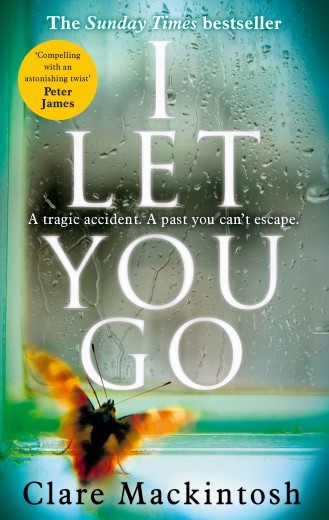
I Let You Go will be the psychological thriller you need to pull you out of a reading slump. The book opens with a mother crossing the street with her child. She let’s go for just a moment and that child is hit by a car. This hit-and-run case leaves little clues to the killer and the reader follows this grief-stricken survivor as she tries to form a new life in a new town, far from the reminders of the accident. Hold onto your hats though because nothing is as it seems and the reader is taking on plot twists that will leave you gasping.
The tired saying that, “this book is the next Gone Girl,” has been said about many thrillers since Flynn’s incredible book.
This book?
Well, I think it really is the one and once you start reading it, you will see why!
Grab your coffee and let’s chat with Clare Mackintosh about her story!
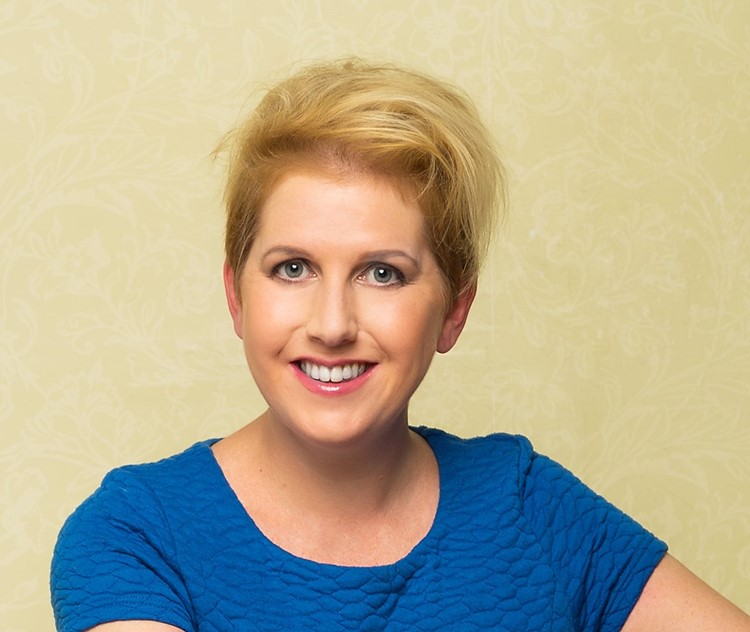
You worked as a police officer for 12 years and then came out with a wildly successful psychological thriller, I Let You Go, that I can’t stop talking about or recommending to all my friends. Did you always want to be a writer and how do you think your time on the force helped benefit your story?
I spent 12 years in the police and loved every minute of it, but it became increasingly hard to balance a busy career with life as a mother of three young children. I took a career break and reinvented myself as a freelance feature writer, and at the same time I wrote I Let You Go. I signed a two-book publishing deal the month before I was due back at work, so I handed in my notice and never went back. The thread that links all three types of work is storytelling: as a detective I told victim’s stories on their behalf; collected witnesses’ stories to support allegations of crime. My job was to pull together all the threads of a story and present it to a court in such a way that they could decide on a verdict. In that way it wasn’t dissimilar to the work I now present to readers.
The book opens with a mother letting go of her child’s hand on a dark street and witnessing her child being hit by a car. I understand that this plot came from a real-life incident that happened in Oxford? What was it about this story, in particular, that made it stick with you so much that you would want to fictionally explore this?
In 2000, just after I started my career in the police, there was a tragic hit and run in Oxford, England. It killed a nine year old boy and sent shockwaves through the city. I didn’t work directly on the case, but I was profoundly affected by it. I couldn’t understand how anyone could drive away from such a terrible act, and I couldn’t see how the child’s mother could ever survive such a tragedy. Many years later I lost my own son – in very different circumstances – and I began to understand the impact grief has on one’s life. The more I considered this, the more a story took shape.
Jenna’s grief is so raw that, at times, I found it difficult to read what she was going through. I was so sad to read that you also have lost a child yourself. Were you able to channel some of that into shaping Jenna’s grief and loss?
My son died when he was five weeks old. It was, and still is, the hardest thing that has ever happened to me. I found some of the scenes in I Let You Go exceptionally difficult to write, and extremely emotional. There would be times when I would be sitting at my keyboard, tears streaming down my cheeks, wanting that particular scene to be over. It was just too raw, too real. But overall I think I did find it cathartic, just as I have always found it therapeutic to blog about the way I feel.
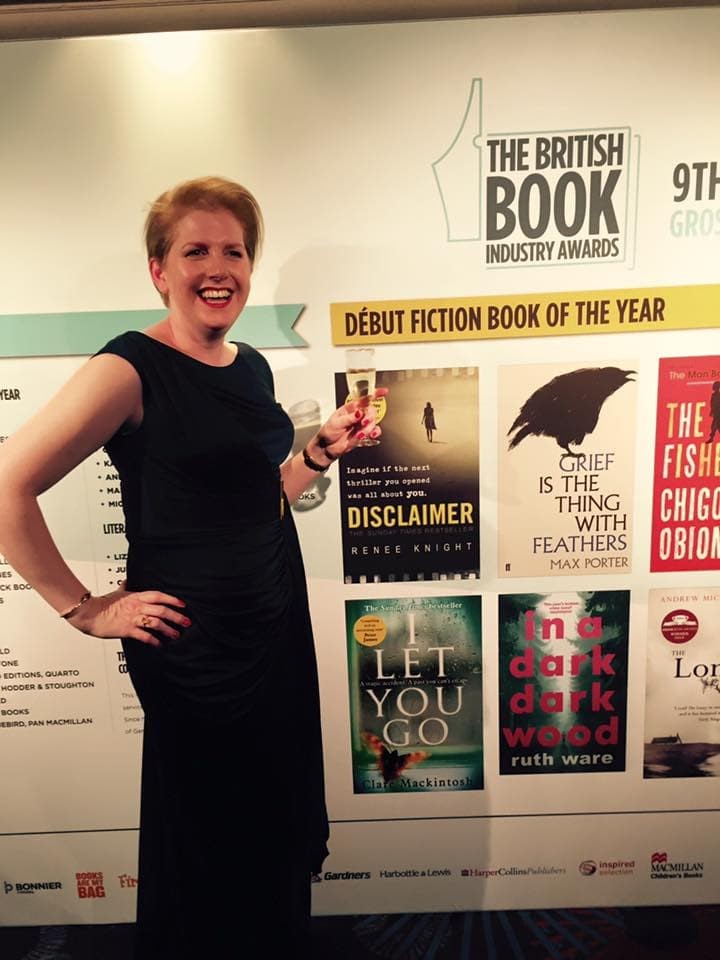
follow Clare on Facebook!!
I am a very seasoned reader so it is very difficult to take me by surprise, but your plot twists absolutely floored me. I truly mean that! Did you always have these twists in mind when you started writing your story and did you try to replicate that experience in your second book for the reader or were you worried it would be too formulaic?
The twist was the first element to arrive. I knew exactly what I wanted to achieve, and why I wanted to do it, and I knew that if I could pull it off, it would provoke an extraordinary reaction among readers. From there it was a question of letting the story take shape around it. I actively avoided adopting a similar structure for my second book, to avoid being predictable. I See You comes out in July 2016 in the UK, and spring 2017 for US readers; it’s very dark, and very twist, but in a very different way to I Let You Go.
I understand with your background, as a police officer, that you have found a lot of errors when it comes to writing of scenes in crime fiction. Is there anyone out there that is getting it right that we should check out?
When I’m reading crime fiction and thrillers I’m always impressed when the author writes authentic police characters. For me I’m less concerned about procedure being a hundred percent accurate – it is fiction, after all – but more sensitive to the realism of a situation. Police officers calling each other ‘Detective’, for example, is something I see a lot in British crime fiction, but never happens in real life! I always find it hard to swallow when UK police brandish guns about, or keep their police cars at home, or charge people they haven’t even interviewed yet. It suggests a lack of research that takes me out of the story. Sarah Hilary’s Marnie Rome is a great authentic contemporary detective – it’s a series worth following.

I read that you have started your very own literary festival! Is there anything you can’t do? What compelled you to start one?
When I left the police in 2011 I was worried I’d be bored without a department to run. I set up ChipLitFest with some like-minded local people, with the aim of creating a community project that had national reach. We’ve had some fantastic authors – Lionel Shriver, Peter James, Brian Blessed, Joanne Harris – and last year we became the first literary festival to divide its profits equally between all the authors involved in the event. I’m hugely proud of it, and honoured to remain a trustee, although the hard graft is all done by other people nowadays. It’s been interesting being on both sides of the fence. It’s made me keen to support smaller festivals, and very understanding of the budget constraints they experience. I love doing events and enjoy small audiences just as much as big ones – often more.
I know you must get asked this a lot, but is there any possibility of a sequel with this book?
Definitely not. I’m aware that some people feel the ending is ambiguous, and it’s impossible to discuss here without spoilers, but I’m always happy to talk about it at book groups or via private messages. Suffice to say, the story – as far as we’re concerned – has been told, and I have no plans to return to these characters.
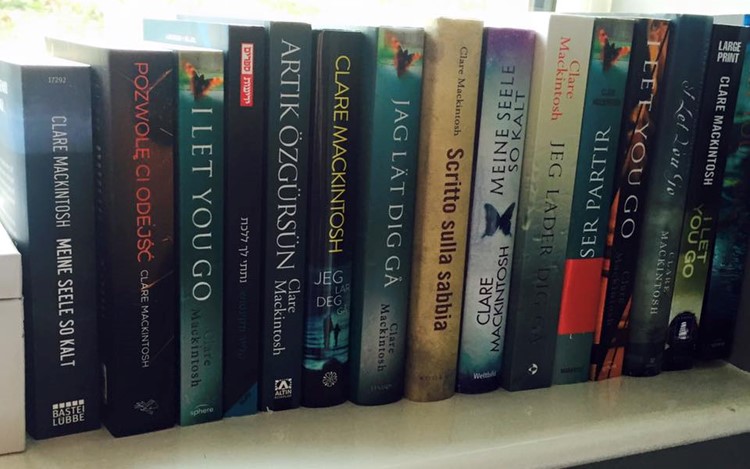
I Let You Go translated into many languages!
Even after you have sold your books, I understand that you spend a lot of time rewriting them. Why do you think these rewrites are so important to the success of a novel?
The first draft of I Let You Go took about nine months, then I spent the same time again editing it before I found a publisher, and another year doing more rewrites with the help of my editor. It was a long process! I wrote eight drafts in total, and each one made the book stronger. They brought out nuances, made characters more three-dimensional, and tightened the twists. Every draft was necessary, but that didn’t stop it being a fairly painful process at the time!
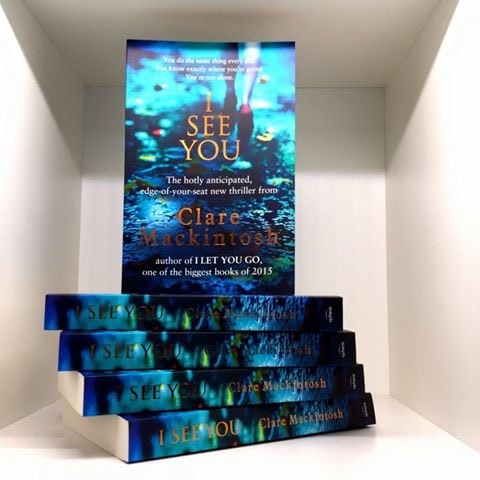
I understand you took an entirely different writing process with your second book and are using visuals of your characters to help craft your story and their backstories. Did you find writing the second book to be easier than the first or do you feel a lot of pressure after all of the accolades with your first book?
With I Let You Go there was absolutely no pressure. My deal had been relatively small, which meant I didn’t feel the weight of expectation from my publishers, and there was no pre-publication hype from the UK media. The book’s success crept up gradually; there was an online buzz first of all, on Twitter and Facebook, and it just got bigger and bigger. With my next book (I See You) I felt under enormous pressure to deliver something just as good, and it was hard not to let that get to me. In the end I just focused on simply writing the best book I possibly could; I couldn’t do any more than that. As for the approach, I’m still learning what works best for me. It’s been different each time, and I fully anticipate it being different for book three, too!
You can connect with Clare Mackintosh on her website, on Facebook, or on Twitter! I’m always thankful for these moments with writers and I hope you will pick up this amazing book! You can always connect with me on GoodReads, through our books section of our site, and you can read our entire Sundays With Writers series for more author profiles. Happy reading, friends!
*This post contains affiliate links!
Pin It